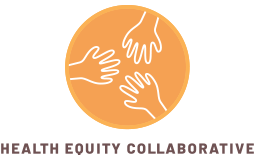14 Oct Health Equity Collaborative Celebrates Hispanic Heritage Month
October 14, 2021
As Hispanic Heritage Month comes to a close this week, we are proud of the work of the more than 15 members of the Health Equity Collaborative that serve the diverse Hispanic and Latinx community. Every day they have used this month to shine a light on the many rich histories, cultures and contributions of people whose ancestors came from Spain, Mexico, the Caribbean, Central and South America.
And while Hispanic Heritage Month is largely viewed as a celebratory time that encompasses the independence and national days of so many counties, it is also an important time to reflect on challenges in the Hispanic community and commit to solving them with equitable and sustainable policy. Hispanics have a major role in the future of our country – and planet. According to Pew Research, the U.S. population grew by 22.7 million from 2010 to 2020, and Hispanics are 51% of this growth.. As of 2021, the U.S. Hispanic population reached 62.1 million, up from 50.5 million in 2010. America cannot succeed unless Hispanic families and communities succeed, and notably in health equity.
During the past 18 months, we have heard again and again how the COVID-19 pandemic has disproportionally affected racial/ethnic minority groups and persons who are economically and socially disadvantaged. This includes the Hispanic community. Hispanics and Latinos are 1.7 times more likely to contract COVID-19 than their non-Hispanic white counterparts, as well as 4.1 times more likely to be hospitalized from COVID-19. Race and ethnicity are risk markers for other underlying conditions that affect health, including socioeconomic status, access to health care, and exposure to the virus related to occupation.
As of September, while white adults accounted for the largest share of unvaccinated adults (60%), Hispanics and Blacks remain less likely to be vaccinated, leaving them at increased risk, particularly as variants spread. The data show that these disparities are narrowing over time, particularly for Hispanic people. At the Health Equity Collaborative, we commend the Centers for Disease Control and Prevention (CDC) for making vaccine equity is an important goal and defined equity as preferential access and administration to those who have been most affected by COVID-19.
As and we honor and celebrate the contributions and growth of Hispanics to our country, we also reaffirm our commitment to ensuring these communities have access to trusted health care information regardless of language. The Health Equity Collaborative remains committed to elevating health equity and addressing social determinants of health to effectively address pervasive health disparities faced by our Hispanic communities.
Together, we are working toward healthcare inclusion for the wellness of our whole country.


